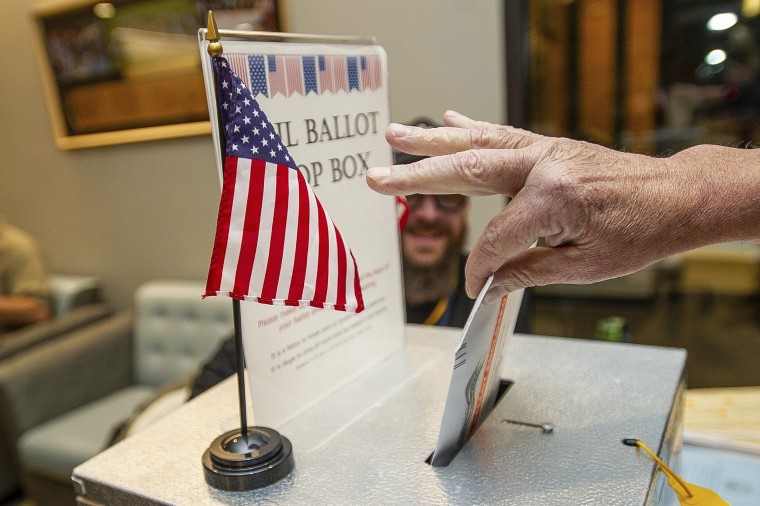At roughly this point two years ago, House Democrats announced that they'd set aside H.R. 1 for a bill called the For the People Act, a sweeping reform package intended to expand voting rights, and end partisan gerrymandering, among other things. Or put another way, as 2019 got underway, Democrats made clear they intended to strengthen our democracy itself.
It passed the House two months later, before Senate Majority Leader Mitch McConnell (R-Ky.) made clear that his Republican-led chamber would not consider the legislation. The GOP leader condemned it as a "half-baked socialist proposal," proving in the process that Republicans no longer know or care what "socialist" means.
But two years later, it's a new Congress; there will soon be a new president; and McConnell is poised to lose control of the Senate. With this in mind, House Democratic leaders recently reintroduced the For the People Act as the new H.R. 1, intended to address "rampant voter suppression, gerrymandering, and a torrent of special interest dark money."
This morning, Senate Democratic leaders -- which is to say, the leaders of the incoming Senate majority -- announced that they've also made the For the People Act their S. 1 for the new Congress. The Washington Post's Greg Sargent got an advance look at its contents:
The new bill would dramatically broaden voting access. It would require states to implement automatic voter registration, extensive early voting and same-day registration. It would restrict efforts by states to place suppressive hurdles on voting and vote-by-mail. The bill also seeks to restore protections in the Voting Rights Act that the Supreme Court gutted and to block states from disenfranchising felons. It would require states to adopt independent redistricting commissions, a strike at likely GOP efforts to gerrymander House maps in 2021. The bill would also implement new disclosure requirements on lobbying and "dark money" spending, and would require presidents and vice presidents to disclose tax returns.
Soon-to-be Senate Majority Leader Chuck Schumer (D-N.Y.) said in a written statement, "From a violent insurrection at the Capitol to the countless attempts to silence the vote of millions of Americans, attacks on our democracy have come in many forms. Senate Democrats are committed to advancing real solutions and fighting to uphold the core tenets of our constitution, which is why we are announcing today that the first bill of the new Congress will be the For the People Act.
Schumer added, "Anyone who believes in a government by the people and for the people should support this important legislation."
A 22-page summary of the legislation is available here.
As a political matter, it's heartening to see the incoming Democratic majority make strengthening our democracy such a priority. The pillars of our system have obviously faced extraordinary attacks over the last four years, and it's critical that they be bolstered and repaired. The merits of the For the People Act should be obvious.
But Republicans, many of whom are eager to respond to the 2020 elections by imposing even more voting restrictions, probably won't see it that way. In fact, a GOP filibuster against this reform package is inevitable.
I won't pretend to know how the process will unfold, though I will note that in July, former President Barack Obama spoke at the late Rep. John Lewis' funeral, and explained that the best possible way to honor Lewis and his legacy would be to revitalize American voting rights -- not only by restoring the Voting Rights Act gutted by conservative Supreme Court justices, but also by, among other things, advancing automatic voter registration, re-enfranchisement for former felons, expanding polling locations and early voting, and making Election Day a national holiday -- and some of these elements are included in the new S. 1.
Obama added in his remarks, "[I]f all this takes eliminating the filibuster -- another Jim Crow relic -- in order to secure the God-given rights of every American, then that's what we should do."
Watch this space.
